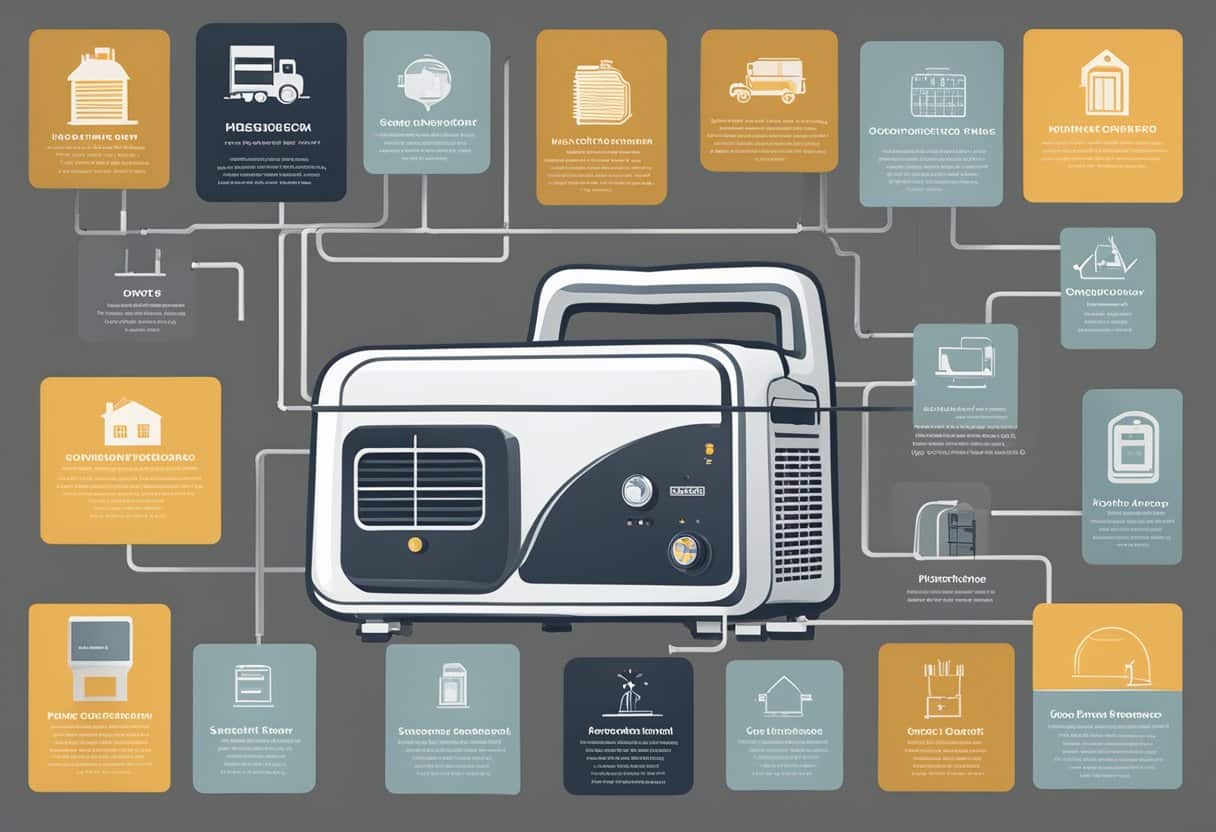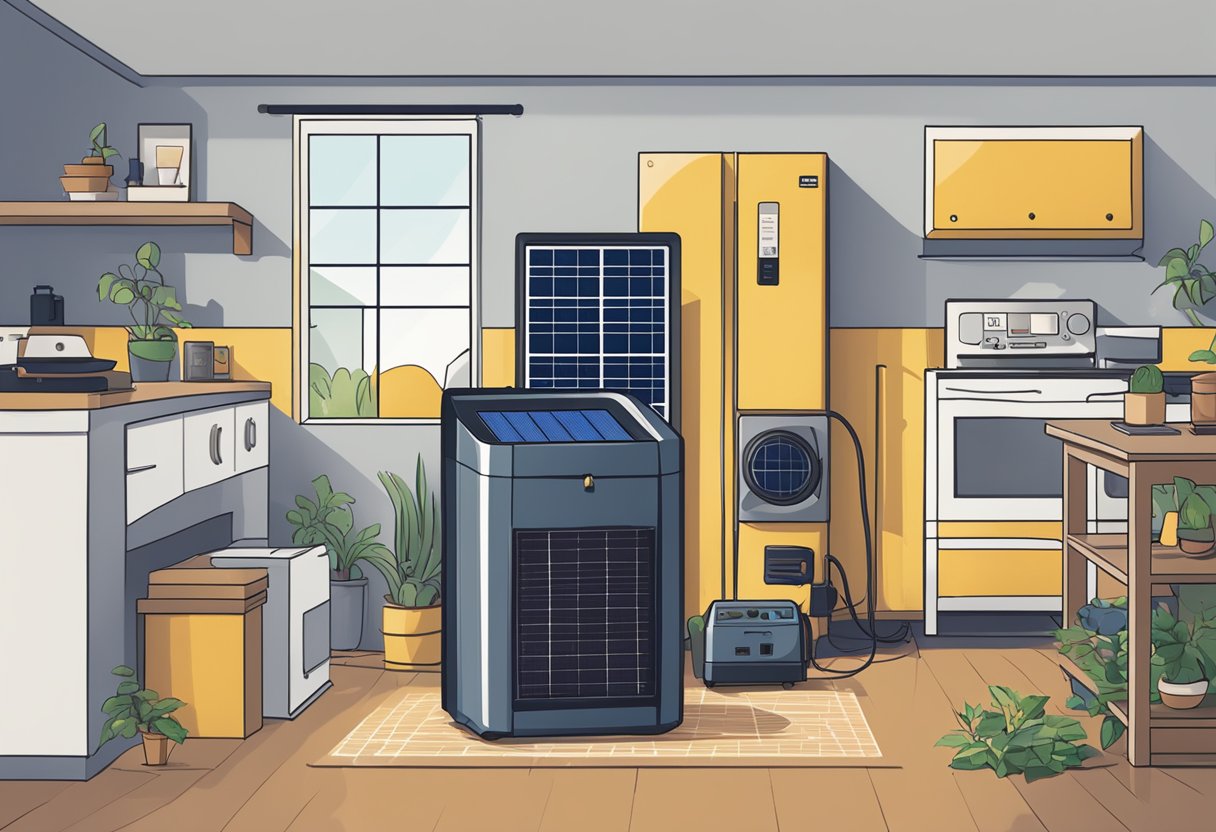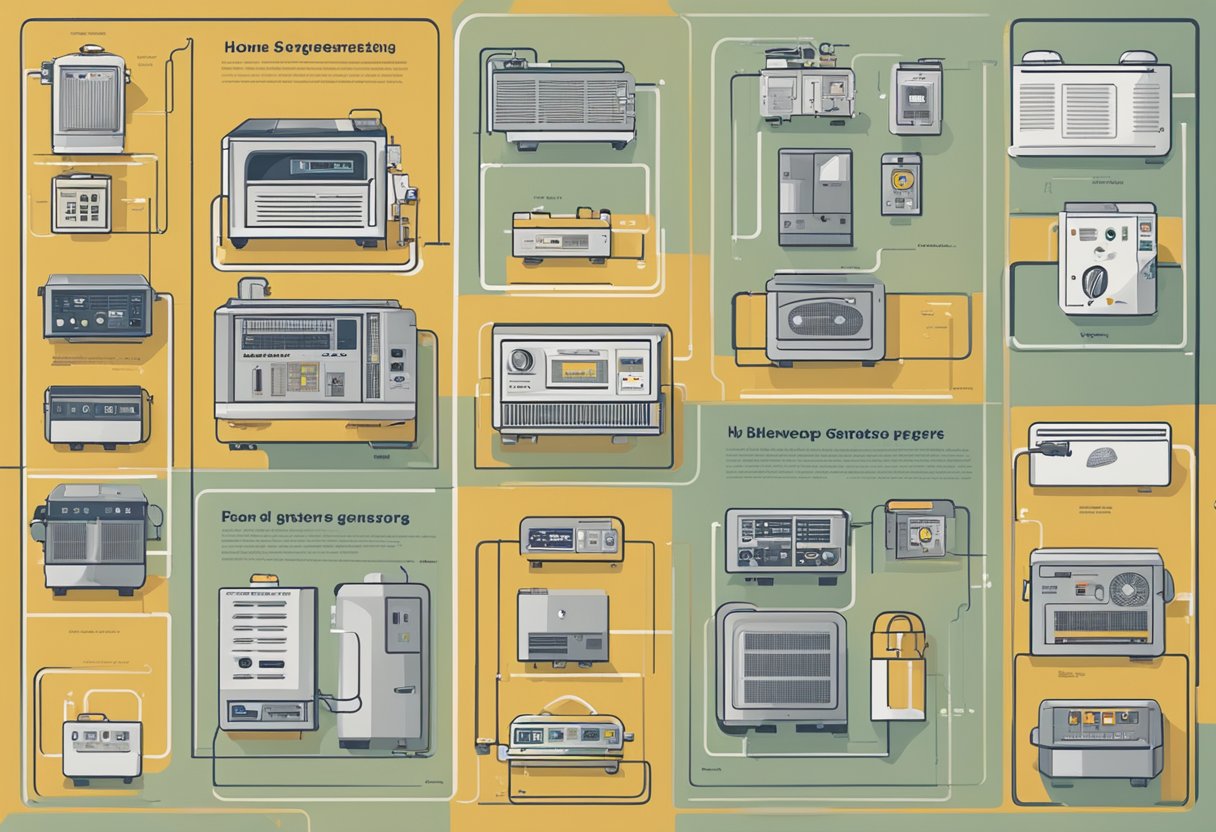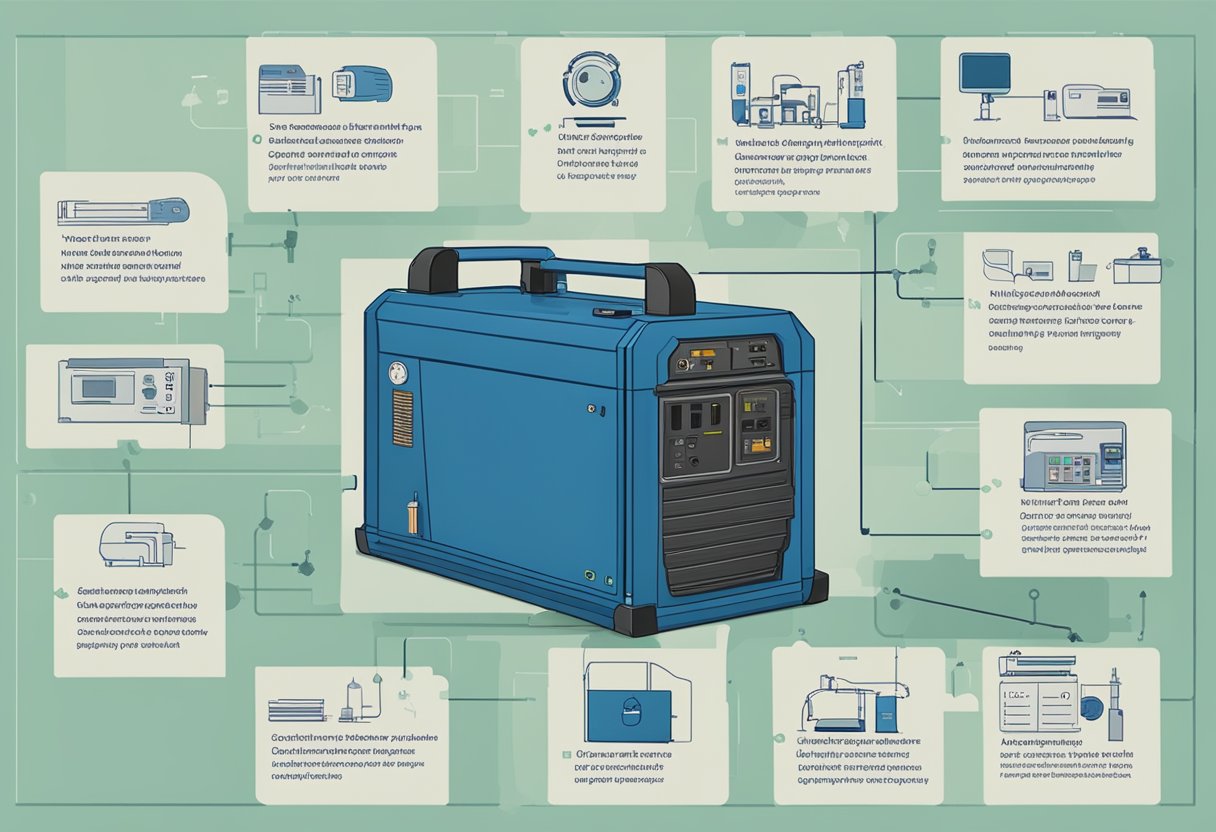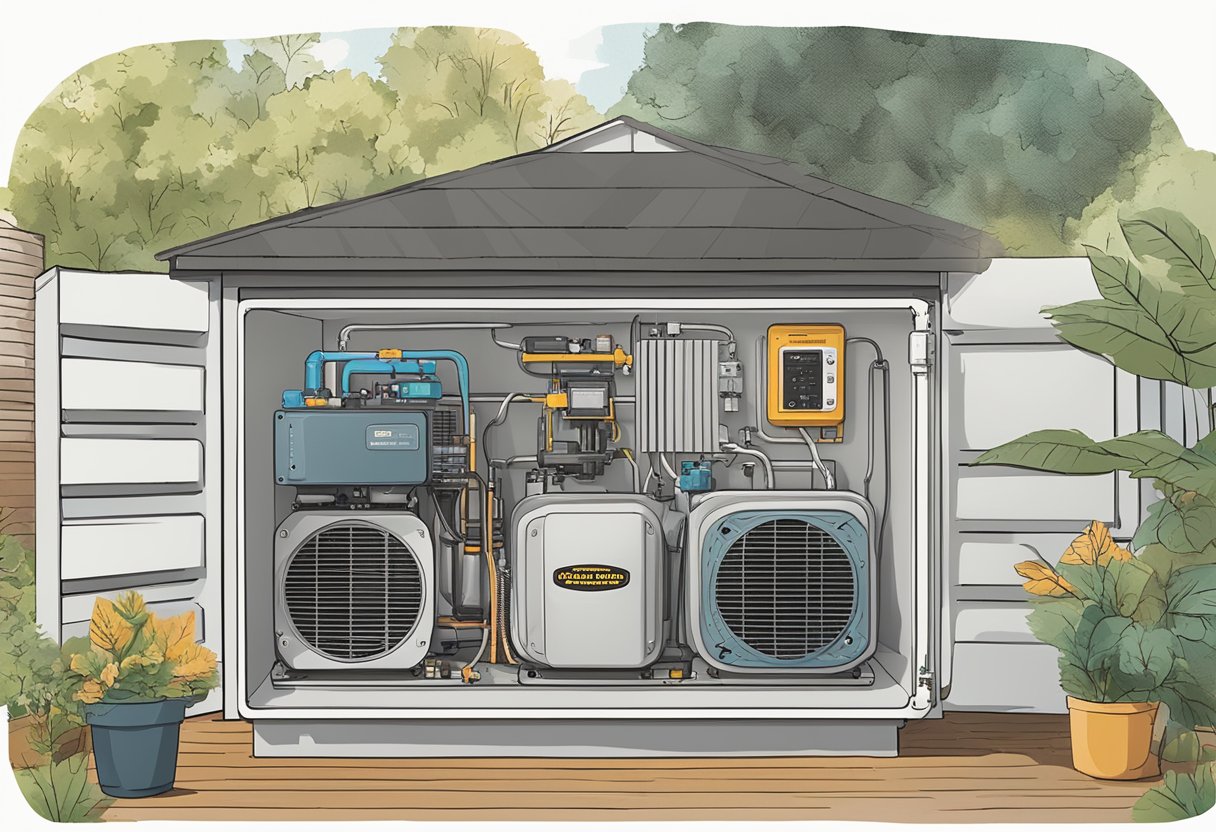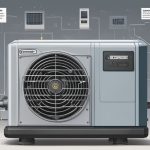Selecting the best home generator is a decision that shouldn’t be taken lightly; it is an essential part of securing uninterrupted power for your home. In the face of unexpected power outages, a reliable generator can make all the difference, providing you with the necessary electricity to keep essential appliances and systems running smoothly. The key to making the best choice involves understanding your power needs, the generator types available, and matching those to the specific requirements of your household.
Understanding the different types of generators, their fuel sources, and how much power they can supply is fundamental to making an informed purchase. Whether you prioritize portability, cost, or the ability to power your entire home seamlessly, there is a generator fit for your needs. It’s not only about choosing a generator with enough wattage to power your appliances but also considering factors like installation, maintenance, and safety precautions which are crucial for effective and reliable operation.
Key Takeaways
- Identifying power requirements ensures selecting a generator that meets your specific needs.
- Consideration of generator types and fuel sources is vital for an appropriate match to your lifestyle.
- Understanding installation and maintenance is important for safety and long-term reliability.
Understanding Generators
When selecting a home generator, understanding the various types available is essential. Home standby generators are a permanent solution, automatically activating during a power outage and often running on natural gas or liquid propane. They offer the convenience of continuous operation and high performance, ensuring no disruption to one’s lifestyle.
Portable generators are a flexible and less costly alternative, suitable for occasional use such as camping trips or outdoor events. However, they require manual start-up and refueling and can be noisy.
Inverter generators, on the other hand, present a more sophisticated option, adjusting their engine speed to the power demand. This results in quieter operation, improved fuel efficiency, and a reduction in harmful emissions. They are ideal for sensitive electronics due to their stable power output.
For eco-conscious consumers, solar generators provide clean energy by converting sunlight into electricity. They are silent and maintainance-free but may be less reliable during extended periods of overcast weather or at night.
Lastly, dual-fuel generators offer versatility by operating on two types of fuel, typically gasoline and propane, allowing for extended use during emergencies or fuel availability issues. They are an excellent choice for those seeking adaptability.
Generator Sizing and Wattage Calculation
Choosing the right-sized generator for a home is a critical step that requires careful consideration of power needs. Homeowners must calculate the total wattage of appliances they wish to operate during a power outage. This ensures the selected generator can handle the load without being overloaded.
Key Appliances and Typical Wattage Requirements:
- Refrigerator: 600-800 watts
- Well Pump: 500-750 watts
- Air Conditioning: Varies greatly, up to 4000 watts for a 24,000 BTU unit
- Space Heater: 1,250-1,500 watts
- Window Air Conditioner: 500-1,500 watts
Homeowners should start by listing the wattage of essential appliances and household appliances they plan to power. To find an appliance’s wattage, one can refer to the product’s user manual or look for a label on the appliance. For example, a standard refrigerator typically needs 600-800 watts, and more for starting.
Once the wattages are listed, the next step is to add them up, which provides the running wattage requirement. It’s also important to take into account starting watts or surge watts, which are typically much higher than running watts. This is especially critical for appliances with motors, like well pumps or air conditioners, as they need more power to start up.
A simple rule of thumb provided by GeneratorGrid suggests that most residential homes will likely need a 10-20kW generator, though it greatly depends on the number and type of appliances one intends to run.
| Appliance | Size | Running Wattage |
|---|---|---|
| Refrigerator | Medium | 600-800 watts |
| Space Heater | Small | 1,250-1,500 watts |
| Window Air Conditioner | Medium | 1,000-1,500 watts |
Remember, when in doubt, consulting with a professional or using an online wattage calculator can provide a more personalized and accurate assessment for generator sizing.
Generator Fuel Types and Power Sources
Choosing the right fuel type for a home generator is crucial for reliability and convenience. Generators commonly use a variety of fuels, such as gasoline, diesel, propane, natural gas, and increasingly, solar energy. Each power source has its own set of advantages and considerations.
Gasoline:
- Highly accessible but has a shorter shelf life.
- Often used for portable generators.
Propane (Liquid Propane):
- Longer shelf life and clean burning.
- Available in tanks; suitable for generators fueled by propane.
Natural Gas:
- Runs cleaner than gasoline or diesel.
- Requires a gas line connection; viewed as a reliable fuel source.
Diesel:
- Known for efficiency and longer engine life.
- Stored easily; however, not as clean-burning as propane or natural gas.
Solar Energy:
- Eco-friendly and renewable.
- Reliant on sunlight availability; often used to complement other fuel sources.
When selecting a generator, it’s important to consider the availability of the fuel sources in your area, as well as storage and safety requirements. Propane and natural gas can be useful if looking for fewer emissions and a reliable supply, while gasoline may be preferred for its convenience, despite its volatility and the need for frequent refueling. Solar-powered generators provide a sustainable power source but should be considered alongside other options to ensure continuous power during variable weather conditions. Each fuel type offers a distinct balance of cost, availability, and environmental impact, making it vital to evaluate personal needs against these factors.
Installation and Safety Precautions
When installing a home generator, safety is paramount. It is crucial to follow the manufacturer’s instructions and local codes. Professional installation by a qualified electrician is recommended, especially for generators that are permanently connected to the house wiring.
Carbon monoxide (CO) is a colorless, odorless gas that can be deadly. Install CO detectors on every level of the home and test them regularly. Generators must be operated outdoors, away from windows, doors, and vents to prevent CO from entering the home.
Transfer switches are critical for safe operation. They prevent backfeeding, which can be dangerous to utility workers and neighbors served by the same utility transformer. They are installed by an electrician and can be manual or automatic.
- Manual transfer switches require the user to manually switch the power source from the utility to the generator.
- Automatic transfer switches do the job automatically when a power outage is detected.
Carbon monoxide safety is not to be overlooked:
| Action | Importance |
|---|---|
| Using CO detectors | Essential for detecting CO levels |
| Proper ventilation | Prevents CO buildup |
| Regular maintenance | Ensures the generator operates safely |
Safety tips include:
- Ensure portable generators are stable and positioned on a flat surface.
- Never use a generator in an enclosed space or indoors.
- Keep generators dry and operate on a dry surface under a canopy-like structure.
- Store fuel safely, away from living areas and fuel-burning appliances.
Benefits of Standby Generators
Standby generators offer significant advantages for homeowners concerned about power consistency and quality. In contrast to portable generators, standby units provide a seamless transition of power during an outage. They are installed permanently and connect directly to a home’s electrical system. When a power disruption is detected, an automatic standby generator kicks in almost instantaneously, ensuring that critical appliances remain operational.
Key benefits include:
- Uninterrupted power supply: Standby generators automatically activate during a power outage, minimizing downtime.
- Safety: They eliminate the manual setup of portable generators, reducing the risk of accidents and exposure to elements.
- Convenience: These generators run on natural gas or liquid propane, negating the need for fuel storage.
- Peace of mind: Homeowners can rest assured their homes are protected from power interruptions, which is important for preserving food, medical equipment, and home comfort systems.
- Increased home value: Installing a standby generator can boost property appeal and resale value.
Considerations for Standby Generators include:
| Features | Benefits |
|---|---|
| Auto operation | Reduces manual intervention and ensures immediate power restoration |
| Fuel type | Provides options for gas lines or propane tanks |
| Power capacity | Sized to handle entire home loads or essential circuits |
Homeowners considering standby generators should assess their power needs to select an appropriate size. While upfront costs can be significant, the long-term benefits of reliability and convenience are often worth the investment.
Portable Generator Advantages
Portability: One of the primary advantages of portable generators is their mobility. They can be easily moved from location to location, making them perfect for camping trips, job sites, and emergency power at home.
Affordability: In comparison to stationary generators, portable units are generally less expensive. They offer a cost-effective solution for those needing temporary or occasional power.
Ease of Use: With a straightforward setup, these generators usually start with a manual pull start or a simple push-button electric start. There’s no complex installation process, which allows for non-technical users to operate them with ease.
Size and Weight: Portable generators come in various sizes, with smaller units like a small inverter generator being lightweight and compact, ideal for minor power needs or as a backup for individual appliances.
Versatility: They are incredibly versatile, capable of powering everything from essential household appliances to tools on a construction site. The fuel used is often gasoline, which is readily available.
| Feature | Benefits |
|---|---|
| Portability | Easy to move and use in various locations |
| Cost | More affordable than stationary units |
| Maintenance | Generally lower and user-friendly |
| Power | Suitable for a range of applications |
| Portable Power Stations | Silent and emission-free alternatives |
Noise Levels: A small inverter generator is typically quieter than traditional portable generators, making them suitable for use in camping or residential areas where noise is a concern.
Fuel Efficiency: Modern portable generators are designed to adjust their engine speeds to the current electrical demand, enhancing fuel efficiency and reducing operating costs.
Solar Generator Perks
Solar generators offer a range of benefits for homeowners looking to ensure reliable access to electricity while also being conscious of the environment. They are an increasingly popular choice due to their distinct advantages over traditional generators.
Environmentally Friendly: Solar generators harness energy from the sun, using solar panels, making them a green power solution. They do not emit harmful greenhouse gases, thus reducing one’s carbon footprint.
Quiet Operation: Unlike fuel-powered generators, solar generators operate almost silently. This makes them ideal for use in residential areas where noise pollution can be a concern.
Low Running Costs: After the initial investment in buying a solar generator and, if necessary, additional solar panels, the ongoing costs are significantly lower. They do not require fuel since they convert solar energy into electrical power, leading to savings on fuel costs.
Portable Designs: Many solar generators are designed for easy carrying and transport, making them suitable for both home use and outdoor activities.
| Benefits | Description |
|---|---|
| Renewable Energy Source | Solar generators make use of solar panels to convert sunlight into power, ensuring a consistent, renewable energy supply. |
| Minimal Maintenance | They typically require less maintenance than fuel-based generators as they have fewer moving parts, which also reduces the risk of mechanical failure. |
| Versatile Charging Options | Most models can be charged via solar panels, AC wall outlets, or even car chargers, providing flexibility in various situations. |
While the power output of solar generators may vary, they are generally sufficient for charging devices, powering home appliances, and serving as a backup power source during outages. Specific models, such as the Anker 757 PowerHouse, offer a good balance of value and efficiency, while options like the Geneverse HomePower TWO Pro provide a higher energy capacity for more demanding needs.
Evaluating Cost Factors
When assessing the cost of a home generator, an individual should consider several critical factors that directly impact price. Initial outlay varies based on the generator’s type and size.
Portable Generators:
Typically, these have a price range of $600 to $2,800. Lower capacity models are more affordable, while higher capacity and features like inverter technology can increase costs.
Whole-House Generators:
These are more expensive, with costs ranging from $2,200 to over $20,000. The investment correlates with the unit’s power output and complexity of installation.
Inverter Generators:
More sophisticated inverter generators adapt their power output and can be more fuel-efficient. Their prices fluctuate based on capacity and technology, often seen as an efficient option for moderate power needs.
Besides the purchase price, prospective buyers should budget for installation and ongoing fuel costs. Installation charges are influenced by local labor rates and the need for additional components like transfer switches or exhaust systems.
Operating expenses should account for the type of fuel used — natural gas, diesel, or propane — and fuel consumption rates, which depend on the generator’s efficiency and the load it carries.
Lastly, while not a direct cost, generator ratings provide insight into long-term value through reliability and performance metrics. Consumers often weigh these ratings heavily, as a dependable generator can save money on maintenance and potential downtime.
| Generator Type | Cost Range | Considerations |
|---|---|---|
| Portable | $600 – $2,800 | Mobility, lower power |
| Whole-House | $2,200 – $20,000+ | High power, installation |
| Inverter | Varies | Efficiency, adaptable output |
Buyers should approach generator selection with a solid understanding of their power needs, balancing upfront costs with the reliability and efficiency of the unit to ensure it meets their budget and requirements.
Maintenance and Reliability
When selecting a home generator, considering the maintenance requirements and the reliability of the unit is crucial. Generators come with different levels of complexity in terms of upkeep, so selecting a model that aligns with the owner’s ability and willingness to maintain it is vital.
Warranty: A robust warranty is a sign of the manufacturer’s confidence in their product’s durability and reliability. Look for warranties that cover a span of 3 to 5 years, such as the warranty offered with Generac PowerPact generators.
Durability: Heavy-duty components contribute to the overall longevity of the generator. Select units made with high-quality materials that are known to withstand wear and tear.
Reliability: Systems with a record of fewer breakdowns provide more assured long runtime. A unit’s reliability can often be inferred from customer reviews and professional recommendations.
| Maintenance Consideration | Benefit |
|---|---|
| Regular service | Extends the lifespan and reliability of the generator. |
| Easy access to parts | Simplifies repairs and reduces downtime when maintenance is needed. |
Liquid-cooled generator: These generators are generally more reliable in warmer climates or for extended use because the liquid-cooling system helps prevent overheating, which is a common cause of generator failure.
In summary, buyers should prioritize a generator that offers a solid warranty, is constructed for durability, has a proven reliability track record, and, if applicable, contains a liquid-cooling system for extended use. Owners must commit to regular maintenance to ensure the longevity and efficiency of their home generators.
Selecting the Right Generator
When choosing a generator for home use, understanding capacity is key. Generators are rated in kilowatts (kW), which measure the power output. To determine the right size, one must calculate the total wattage of essential appliances during an outage. Experts, such as those from Consumer Reports, suggest adding up the wattage requirements of refrigerators, sump pumps, and other critical items to find the base load need.
Generator Types:
- Portable: Typically gasoline-powered and suitable for temporary use.
- Standby: Installed permanently, activates automatically, runs on natural gas or propane.
Power Considerations:
- Starting vs. Running Watts: Appliances with motors need more power at startup.
- Total Wattage: Sum the running watts of all devices you plan to use.
When it’s time to purchase, a generator buying guide can be indispensable. Such guides often detail not only power needs but also noise levels, fuel efficiency, and portability. For nuanced performance data, refer to the CR tests generators have undergone; they provide unbiased assessments of power delivery, ease of use, and reliability.
| Criteria | Consideration |
|---|---|
| Size | Must meet power requirements without excessive waste |
| Type | Portable for temporary, standby for continuous power |
| Fuel Type | Gasoline, natural gas, propane, diesel, or solar |
| Emissions | Consider eco-friendly options with lower emissions |
To conclude, individuals must assess their home’s wattage demands, compare generator types, and consider operational aspects before purchasing a generator. Thoroughly researching through a comprehensive buying guide and checking recent test results can aid in making a knowledgeable decision.
Conclusion
In choosing the best home generator, individuals should anticipate the unexpected, from power outages to severe weather events like hurricanes and ice storms. An appropriate generator not only offers peace of mind but ensures that essential devices remain operational during an electrical outage.
A generator should align with the homeowner’s needs, whether it’s to power a central air conditioner or keep crucial appliances running. It’s imperative to select a model with enough capacity to handle the demand. Some generators feature self-diagnosis capabilities, streamlining maintenance and reducing the risk of operational interruptions when most needed.
Prospective buyers ought to assess:
- Wattage Requirements: Calculate the total wattage of all devices to be powered.
- Fuel Source: Consider the availability and storage of fuel types.
- Portability: Decide if a fixed or portable unit suits the home.
By meticulously evaluating these factors, homeowners can secure a reliable power back-up solution. Remember, the objective is to remain prepared, ensuring comfort and safety irrespective of the elements.
Frequently Asked Questions
Choosing the right home generator involves considering power requirements, safety features, and budget. The following frequently asked questions will guide buyers through key factors that matter.
How do I determine the suitable size for a generator to power my home during an outage?
To determine the suitable size for a generator, one must start by totaling the wattage of the appliances and equipment they intend to run. It’s vital to account for starting watts of high-consumption appliances as they require more power to start than to run.
Which generators do Consumer Reports recommend for whole house power supply?
Consumer Reports suggests consulting their latest reviews and tests, as they evaluate generators on a number of factors, including safety, power output, and ease of use. It’s recommended to look for units that have performed well under rigorous testing.
What factors should I consider when purchasing a portable generator for home use?
When purchasing a portable generator, buyers should consider power capacity, number of outlets, fuel source, noise level, portability features, and the presence of safety mechanisms such as automatic shutoff for low oil levels.
How can I calculate the wattage requirements for a generator to run my 1,500 sq ft house effectively?
Calculating wattage requirements for a generator to run a 1,500 sq ft house effectively involves listing all appliances and devices to be powered, checking their wattage ratings, and combining these figures. Remember to add an extra margin to account for future power needs or underestimated appliances.
What are the most cost-effective generators on the market that don’t compromise on quality?
The most cost-effective generators on the market come from reputable brands that offer reliability without the high price tag. Look for models that provide the essential features for home use while being rated well in consumer reviews.
Between portable and standby, which type of generator offers the best backup power solution for my needs?
The choice between portable and standby generators largely depends on one’s power needs and budget. Standby generators offer more power and convenience but at a higher cost. Portable generators are more affordable and offer flexibility in terms of location and storage.

